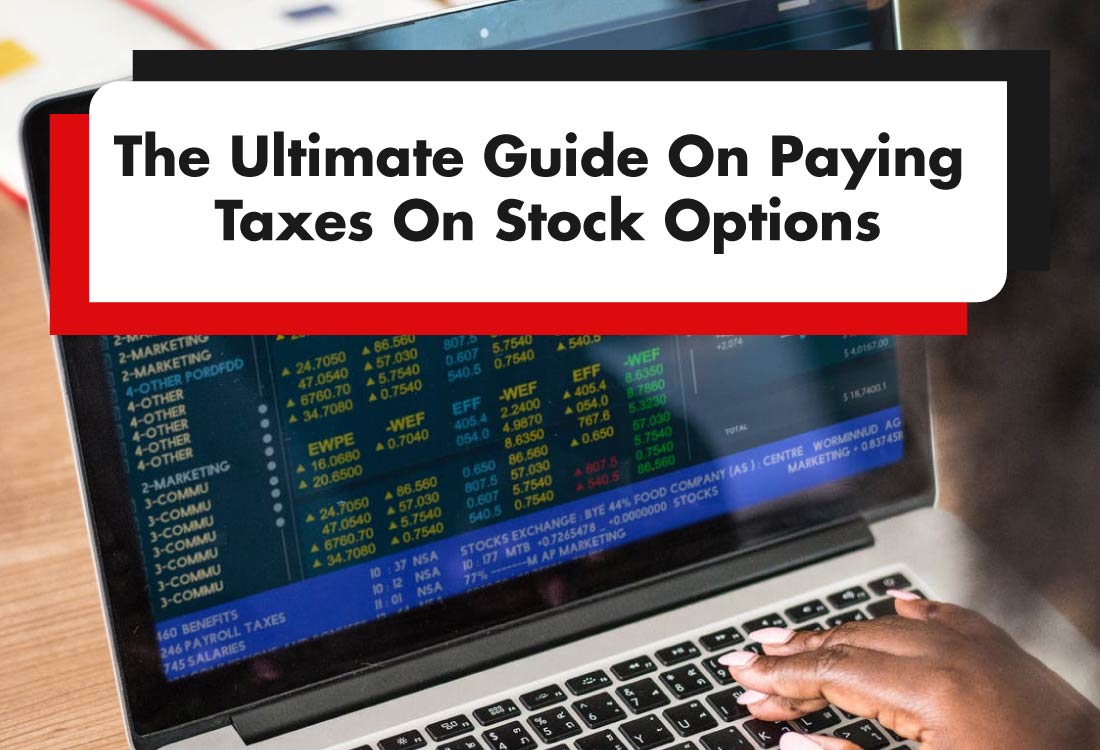Stock-based incentives are the norm nowadays, with more companies offering stock options over cash to their employees. If you’re someone who recently got a stock-based incentive, congratulations!
But, how would you account for the income tax if you didn’t get cash as an incentive? Will the stock-based incentive count towards your income tax? Or is it exempted from tax?
This is something that many people are confused to about. If you’re, too, confused about the paying tax on stock options, we’re here to clarify the queries!
What Are Stock Options?
Generally, stocks are shares of a company that are given away. These stocks are worth a specific amount of money depending on how many stocks are being circulated and the company’s worth. If a company has a high valuation and has very little stocks in circulation, each stock option can be very expensive.
Owning a share of the company means that the person who bought the shares plays a part in the company. Also, the person will benefit if the company increases in valuation. In such cases, the person can sell the stocks for higher margins.
Stock options are when someone is offered a certain amount of shares of the company instead of cash. The amount of shares dispersed has an equal valuation to the cash expected.
Why Stock Options Are So Popular
These days stock options are on the rise. Employers are rewarding employees with a part of the company instead of cash payments. This encompasses two distinct benefits:
- Employees own the company; better results
- Not needing cash for incentives
These have been the major reasons why stock options are very popular nowadays!

Types of Stock Options
Currently, there are two types of stock options that can be offered to employees – non-qualified stock options (NSOs) and incentive stock options (ISOs). The main difference between these two is eligibility; only employees are entitled to receive ISOs, while anyone can be granted NSOs.
Once you’ve been awarded a NSO, you’ll be taxed according to the profit gained during the time you’ve received it. Simply put, let’s say that you received stock options with shares that were $10 a share. Over two years, the price of each share rose to $30. This means that your income generated (profit) is $20 per share, and this will come under taxation. That’s the actual amount you’ll be paying tax on stock options.
As for ISO, the situation can be a bit different. In fact, ISOs can be more beneficial to employees. This is because the exercise date (that is, the validity of the stock options) are not taxable. Instead, you’re only paying once you’ve actually accepted the stocks at the predated prices. This means that you’re getting more value and less taxable income.

Getting Stock-Based Incentives
Employee Stock Options (ESO) for Public Limited Companies and International Non- Canadian Controlled Private Companies
When an employee exercises the stock options, a taxable benefit will be calculated. The employer must report the benefits on the T4 slip that is issued by the employer. The taxable benefit is then calculated by looking at the difference between the strike price (amount you’ve paid) for the shares and their current value on the date of exercise.
Your employer will calculate all the taxable benefits for you and report it on the T4. In most cases once your options are issued, you may be eligible for a deduction that may equal to 50% of the taxable benefits. This means that you’re paying tax on stock options lesser than the capital gains you’re receiving.
Restricted Stock Units (RSUs)
Being one of the most common stock options, the RSUs pose a strict guideline. Employees can’t sell their shares until certain conditions are fulfilled over a certain period of time. This might include an employee to work for the company for at least 2 years to be entitled to the stock options. Or, it might be given as a deferred payment for employee bonuses.
For such stock options, you need to pay the income tax on the value of the stocks that you’ve received. The value will be the current price/monetary value of the shares. You’ll be paying tax on stock options that bring better value than most others. You can also talk to a tax expert if needed.
Employee Share Purchase (ESP) Plan
Public companies often offer their employees with an Employee Share Purchase (ESP) Plan. In such cases, the employees can purchase a defined amount of shares at highly discounted prices. The discounts on the shares are the taxable benefits and will be reported on the T4.
Other Plans
If you’re entitled to any other stock options, including Deferred Stock Units (DSU), Phantom Shares and many others, you must consult with a tax expert to make sure you’re legally safe.
Conclusion
If you’ve recently been offered stock options in your company, you might not know how you’ll be paying tax on stock options. To help your understanding, we’ve done through some of the most common stock options offered and how taxation works on such stock options.
We’ve also gone through what stock options mean and why it’s very popular. While dealing with tax on stock options, you must consider the exercise period.
If you’re still confused, you can get into contact with our professional financial planners and tax experts to go over your case. We can give you the best financial advisory that you truly deserve!




